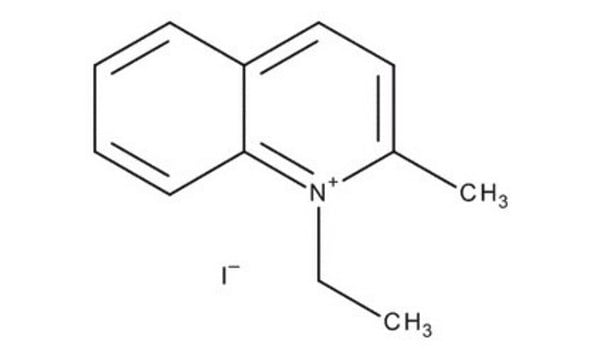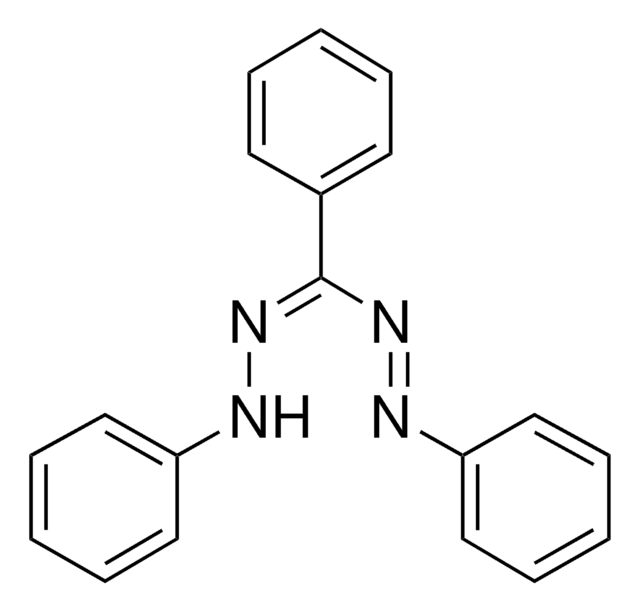N3877
Potassium 4-nitrophenyl sulfate
sulfatase substrate, chromogenic, ≥98% (TLC), powder
Synonym(s):
4-Nitrophenyl sulfate potassium salt
About This Item
Recommended Products
product name
Potassium 4-nitrophenyl sulfate, sulfatase substrate
Assay
≥98% (TLC)
form
powder
mp
246-250 °C (lit.)
solubility
water: 50 mg/mL, clear, colorless to very faintly greenish-yellow (to Very Light Yellow)
shipped in
wet ice
storage temp.
−20°C
SMILES string
[K+].[O-][N+](=O)c1ccc(OS([O-])(=O)=O)cc1
InChI
1S/C6H5NO6S.K/c8-7(9)5-1-3-6(4-2-5)13-14(10,11)12;/h1-4H,(H,10,11,12);/q;+1/p-1
InChI key
BITVAZYUWRLLCN-UHFFFAOYSA-M
Looking for similar products? Visit Product Comparison Guide
Application
- as a substrate to measure arylsulfatase activity in cell-free coelomic fluid
- as a substrate for p-nitrophenyl glycoside-based enzyme assay
- to inhibit arylsulfatase
- as an inorganic analog of organic aryl ester sulphate
Substrates
Storage Class Code
11 - Combustible Solids
WGK
WGK 3
Flash Point(F)
Not applicable
Flash Point(C)
Not applicable
Personal Protective Equipment
Certificates of Analysis (COA)
Search for Certificates of Analysis (COA) by entering the products Lot/Batch Number. Lot and Batch Numbers can be found on a product’s label following the words ‘Lot’ or ‘Batch’.
Already Own This Product?
Find documentation for the products that you have recently purchased in the Document Library.
Customers Also Viewed
Our team of scientists has experience in all areas of research including Life Science, Material Science, Chemical Synthesis, Chromatography, Analytical and many others.
Contact Technical Service











